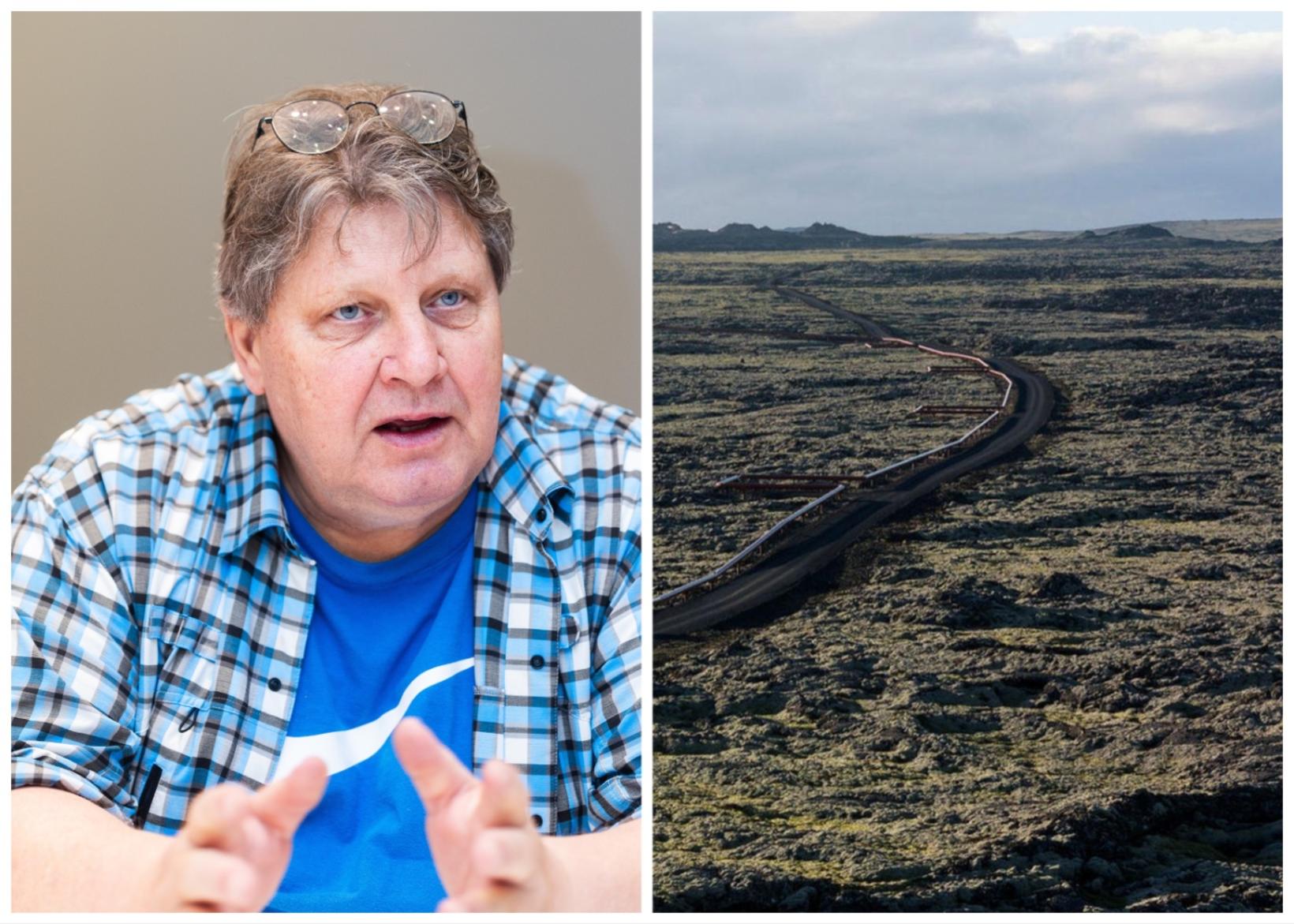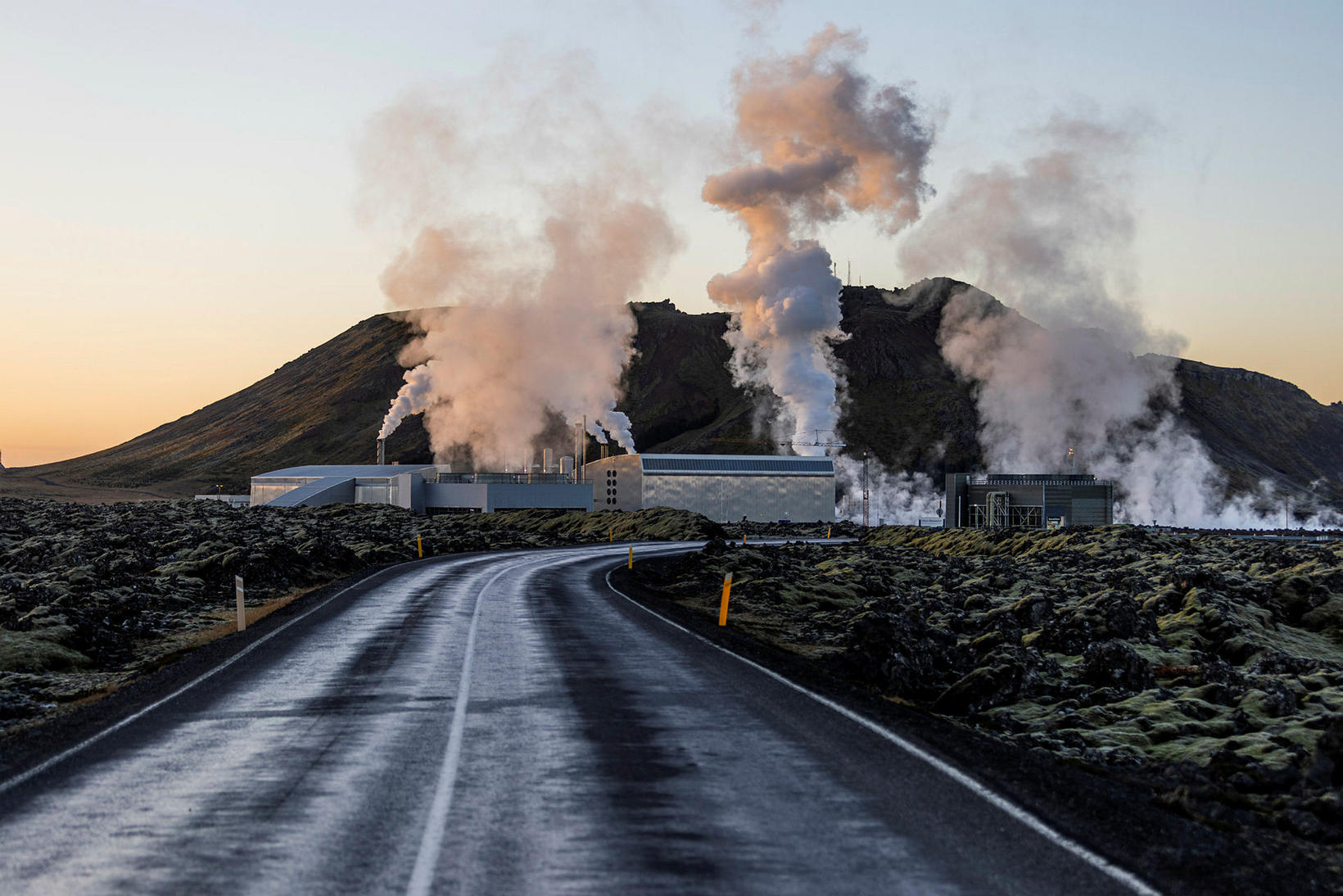Land is rising faster near Svartsengi
The land around the Svartsengi power plant is rising much faster than it did before the earthquake swarm that started on November 10, or about 5.5 times faster. The magma inflow is also about ten times faster.
This is what volcanologist Þorvald Þórðarson said to mbl.is today.
“The flow of magma into this storage chamber, which is at a depth of 4.5 kilometres, is 8 to 10 times higher than what people were talking about before November 10. Then it was about 5 to 7 cubic metres per second, but now it is about 50 cubic metres per second,” Þórðarson says.
A deformation was formed following the events of November 10, when the magma ran beneath Grindavíkurvegur road and east beneath Sundhnúkar crater row.
“The country is rising much faster now. This happens simultaneously because the magma is creating space and thus raising the surface of the earth,” Þórðarson says.
Svartsengi power plant will get to its previous level
If this speed continues, he believes the Svartsengi power plant will have reached its previous position in 5 to 15 days.
“What happens then, it’s hard to tell. We might get an eruption, we might have a re-run of the activitites that happened on November 10 or just something completely new.”
Are the chances of a volcanic eruption in this area increasing?
“I think the likelihood of an eruption in the northern part of the Sundhnúkar crater row or in Illahraun lava increasing every day. I think the likelihood of an eruption there is increasing because of the land rise in that area.”
Entered a new eruption phase
Þórðarson believes it is important to consider preventive measures when considering this new reality that is facing this area.
“We’re in a new and a changed situation and we’ve entered a new the eruption phase, and so it’s very constructive for us to think about what kind of preventive measures we can take.
What can we do before an eruption occurs that will help us reduce its impact on society and infrastructure?”




/frimg/1/57/93/1579337.jpg)
/frimg/1/57/94/1579405.jpg)




